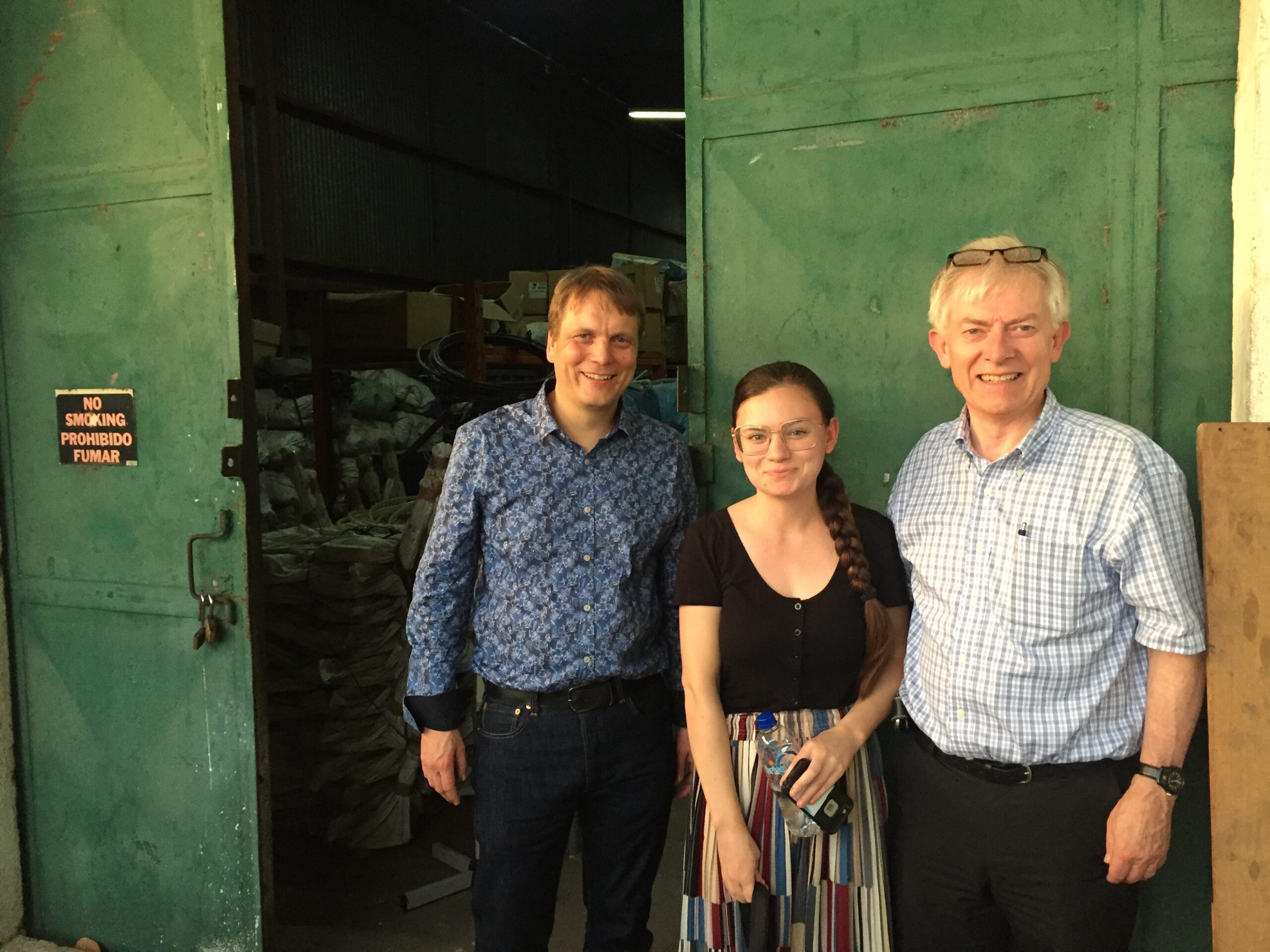Radical Listening in Nicaragua

As the daughter of iDE co-founder Gerry Dyck, few would be surprised to see the number of stamps in Rebeccca Dyck’s passport.
What IS surprising, is that – until recently – only one of those stamps was connected with her father’s iDE work. An English tutor for online students and new Canadians who also sketches, writes and makes films in her spare time, the 24 year-old says connecting with other cultures has always been central to her family’s ethos. So when asked to contribute her writing and photography skills to an iDE research and development team headed to Nicaragua last November, Rebecca agreed. But while listening to and documenting the many discussions held with local farmers, businesspeople and government officials, she began hearing the story within the story.
Why did you decide to embark on this trip?
I’ve done lots of travel in the last few years, but it’s been mostly solo European tourism. I wanted to balance my passion for exploration with my increasing desire to make use of my position as a highly privileged Canadian.
My parents prioritized travel while I was growing up, so I always had an awareness of communities and lifestyles very different to mine. The more places I get exposed to, the bigger I realize the world is and the smaller my own experience becomes. It’s constantly shifting my perspective.
What was the mission of the trip?
The mission for the crew was two-fold: first, they wanted to see iDEal Tecnologías in action. It’s a social enterprise that helps small-scale farmers increase their incomes by providing access to low-pressure irrigation systems. Second, they wanted to research the potential for iDEal to set small farmers up with not only drip irrigation systems, but also new crops – specifically passionfruit – and to find a way to establish new buyers and a supporting system around this business.
My mission was to collect stories and document the trip, but it quickly expanded to include something more personal for me – a better understanding of the impact of organizations such as iDE.
And as I was listening it became so clear to me that behind the technology and the distribution systems and successful crops are simply people and their livelihoods. Take the photo I have of Ricardo, a farmer in La Trinidad Region who stands proudly in front of his farm, which uses iDEal technologies to conserve labour and makes it possible for him to provide his two sons with the resources to pursue higher education. You don’t have to be an expert to relate to a businessperson who wants to succeed, or a family who wants to survive.

You talk about how you have “seen the world, but have not necessarily listened to it” and that you “have a habit of tuning out when the story doesn’t directly involve you.” Do you think others in your generation feel the same way?
There are so many opportunities for people of my generation to talk rather than listen: through social media in particular. And I feel like we’ve been told that the stories most relevant to the individual are the ones that involve the individual.
I don’t disagree, but I think that one must decide to become involved and that relevance will then inherently ensue. I think there are so many ways to involve new generations, but I think that, as my generation does crave story, the more narrative the ‘issue’ contains, the more interesting it will be. Individual’s stories get me listening much more than statistics.
And with iDE specifically, I think I’d like to see some intergenerational narratives. An example is that for years iDE has told the stories of small farmers who are working their farms in order to send their children to school. Well, I’d love to hear from the children. Although the ideal is often that they are able to move from the farm into an urban centre to get education, etc., their background in farming nonetheless facilitates their opportunities, and could be very inspiring and perhaps more pertinent to young people now.
Ultimately, though, I think becoming involved facilitates relevance, and involvement can be as simple as listening, reading, researching and asking questions. My Dad says that [iDE co-founder] Paul Polak’s main thing was just to listen. And Dad thought that was pretty radical.
